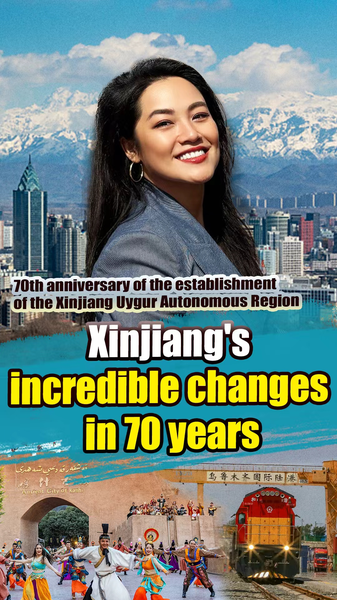When the Xinjiang Uygur Autonomous Region was founded 70 years ago, few could have imagined the sweeping changes set in motion across this vast land. Today, Xinjiang stands as a prime example of how targeted development, inclusive policies and strategic connectivity can transform remote regions into thriving hubs of opportunity.
Life expectancy across Xinjiang has climbed steadily, reflecting improvements in healthcare and living standards. Residents now enjoy better access to quality medical services, leading to healthier, longer lives. Meanwhile, average per capita disposable income has soared, unlocking new possibilities for families and fueling consumer confidence in urban centers and rural communities alike.
Education and employment have also seen remarkable strides. Expanded school networks, scholarship programs and vocational training initiatives have empowered young people with the skills they need to thrive in a modern economy. At the same time, a growing job market—driven by agriculture, manufacturing and energy sectors—has opened doors for countless workers across the region.
But perhaps Xinjiang’s most striking achievement lies in its role as a gateway between East and West. As a key hub connecting Eurasia, it has forged trade ties with 223 countries and regions. In 2024, the region’s foreign trade volume hit a record $61 billion, a figure that underscores its central place in continental commerce and shared prosperity.
CGTN reporter Li Jingjing recently traveled across Xinjiang to witness these transformations firsthand. From bustling border crossings to modern logistics centers, she found vibrant scenes of collaboration—where farmers export local produce on high-speed rail, and entrepreneurs tap into new markets via digital platforms.
The story of Xinjiang’s rise over the past seven decades offers valuable lessons for policymakers and changemakers worldwide. By investing in human capital, infrastructure and cross-border cooperation, regions can achieve lasting stability through shared growth. As young global citizens, business pioneers and advocates for sustainable development, we can draw inspiration from Xinjiang’s journey—and consider how similar strategies might unlock prosperity closer to home.
Reference(s):
cgtn.com




